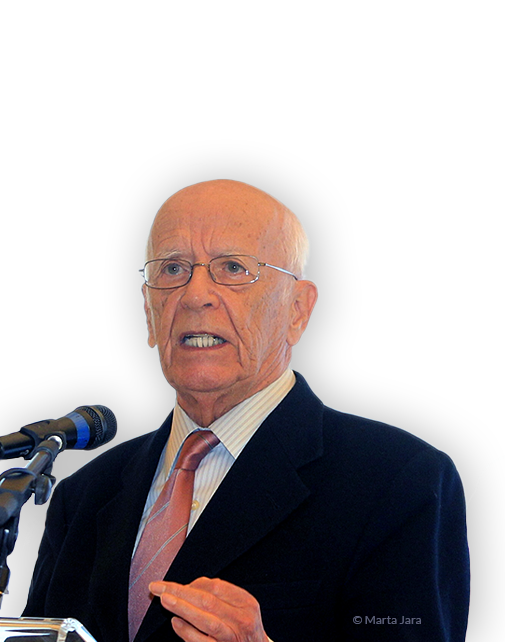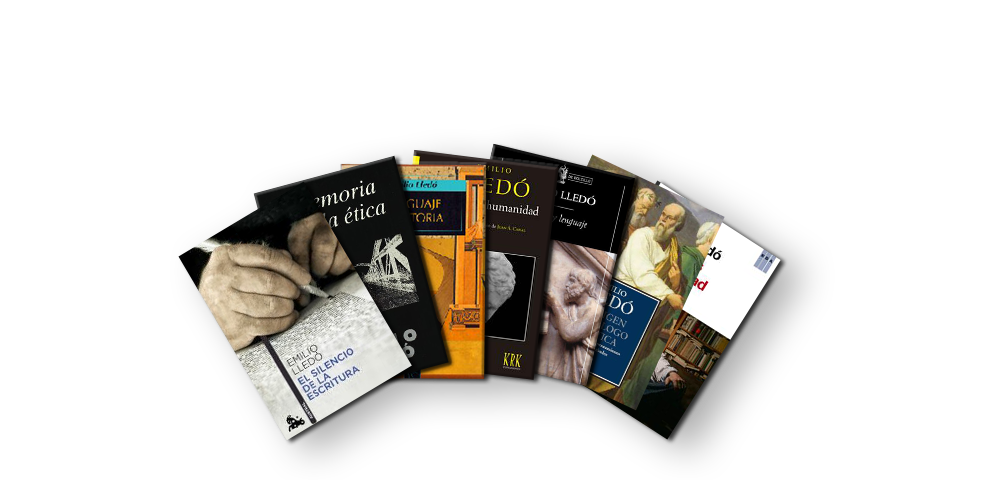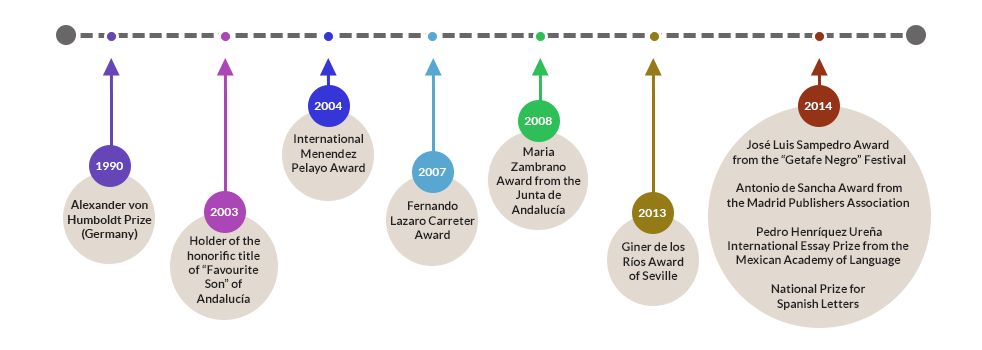
Biography
Emilio Lledó Íñigo (Seville, 5th November 1927) graduated in Philosophy from the University of Madrid (1952) and studied at the University of Heidelberg (Germany) for three years on a scholarship from the Alexander von Humboldt Foundation. There, he had the chance to immerse himself in German post-war philosophy and to become acquainted with Hans-Georg Gadamer, Karl Löwith and Otto Regenbogen.
The last of these philosophers steered him towards classic philology. He returned to the University of Madrid in 1955 as an assistant lecturer, where he earned his PhD in 1956. A year later, he returned to the University of Heidelberg as a Spanish conversation assistant and in 1964 obtained the Chair in Foundations of Philosophy and History of Philosophical Systems at the University of La Laguna (Tenerife). He moved to Barcelona in 1967 to take up the History of Philosophy Chair. In 1978, he joined Spain’s National Distance Education University (UNED), Madrid, as Professor of Philosophy, where he was to remain until his retirement. Life member of the Institute for Advanced Study in Berlin (1988), he was elected member of the Royal Spanish Academy (RAE) in 1993, occupying the “l” chair and the position of academic librarian between 1998 and 2006. He also chaired the expert committee that drew up the Report for Reforming State-Owned Media (2005).
He has played an important role in the recovery of Greek philosophy and Hellenism in Spain and has contributed to the development of hermeneutics within the field of contemporary Spanish philosophy. Lledó believes that language is an essential element in thinking and in the way humans integrate into society and nature. He thinks that philosophy is no other than meditation on this integration and the history of the philosophy is understood as the collective memory of the complex process followed by humanity.


Works
Author of over a hundred research papers, he has published articles in the most prestigious international philosophical journals and has written around twenty books, including El silencio de la escritura (1981), for which he won the National Essay Prize in 1992; Memoria de la ética (1995); Lenguaje e historia (1996); Imágenes y palabras: ensayos de humanidades (1998); El epicureísmo (2003); Elogio de la infelicidad (2006); Filosofía y lenguaje (2008); Ensayos para una educación democrática (2009), El origen del diálogo y de la ética. Una introducción al pensamiento de Platón y Aristóteles (2011) and Los libros y la libertad (2013). He also publishes current affairs articles in the El Pais newspaper
Awards
Member of the International Institute of Philosophy, Lledó holds the Grand Cross of the Civil Order of Alfonso X the Wise and honorary degrees from the Universities of La Laguna, the Balearic Islands and Lleida.

Minutes of the jury
At its meeting in Oviedo, the Jury for the 2015 Princess of Asturias Award for Communication and Humanities, composed of Inés Alberdi Alonso, José Antonio Álvarez Gundín, Luis María Anson Oliart, Juan Barja de Quiroga Losada, Adela Cortina Orts, Javier González Ferrari, Elvira Lindo Garrido, Miguel Ángel Liso Tejada, Emilio Morenatti Fernández, José Narro Robles, Benigno Pendás García, José Antonio Vera Gil, Enrique de Ybarra e Ybarra, chaired by Víctor García de la Concha and with Alberto Anaut González acting as secretary, has decided to confer the 2015 Prince of Asturias Award for Communication and Humanities on Spanish philosopher, essayist and academic Emilio Lledó Íñigo.
A thinker of international standing with an exemplary career in the field of the Humanities, Lledó conceives Philosophy as meditation on language and emphasizes the natural tendency of human beings to communicate. He thus embraces enlightened reasoning via dialogue that furthers coexistence in free and democratic society.
Oviedo, 20th May 2015


